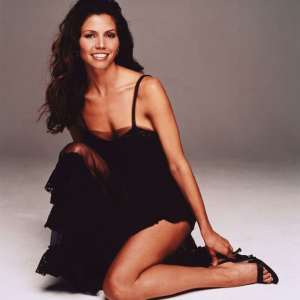We’ve all heard the phrase “breast is best,” but what does exclusive breastfeeding really do for your baby? We’re not here to guilt or pressure—just to lay out what science has uncovered when moms choose to feed their babies breast milk and nothing else for the first few months. No formula, no solids, not even water. Just mama and milk.
Spoiler: the results are pretty fascinating. But let’s break it down together.

The World Is on Board — So Why All the Debate?
Both the World Health Organization (WHO) and the Centers for Disease Control and Prevention (CDC) recommend exclusive breastfeeding for the first six months of life. That’s not just a casual suggestion — it’s based on decades of research. So why do so many new parents still feel conflicted or unsure?
Video: Is Breast Milk Actually Better Than Formula? Science Explains
It’s because this decision isn’t just scientific — it’s personal, emotional, and sometimes even logistical. Still, knowing the facts can help cut through the noise.
Sharper Minds Start Early: Cognitive Development Wins

A massive study involving over 570,000 children found a strong link between exclusive breastfeeding and stronger problem-solving skills by age 3. The longer babies were breastfed exclusively, the more likely they were to perform better in early developmental milestones.
Even more impressively? These kids also scored higher on mental ability tests later on. That’s not just about memory or math. We’re talking about attention span, reasoning skills, and even curiosity.
You might say breast milk isn’t just food—it’s fuel for growing minds.
Talkative Tots: Language Skills Boost
Ever heard your baby babble and wondered what it means? Turns out, exclusive breastfeeding may encourage early language development, too.
One study found that babies who were breastfed exclusively for a longer time showed more monobabbling (those adorable repeating syllables like “ba-ba” and “da-da”) and had faster recognition of simple commands like “no.”
It’s like breast milk helps jumpstart their internal communication wiring. Pretty incredible, right?
Tiny Humans, Big Feelings: Social and Emotional Growth

Let’s talk feelings. Babies don’t just need to grow muscles and brain cells—they also need to feel safe, connected, and confident.
A series of studies showed that babies exclusively breastfed for at least four months scored higher on social interaction tests at 6 and 12 months. They smiled more. Made eye contact more often. And were quicker to respond to emotional cues.
Is it the closeness of feeding? The hormones passed through milk? The warmth and eye contact during feedings? Probably a mix of it all.
The Physical Perks: Immunity and Nutrition in One
Breast milk isn’t just about calories. It’s packed with:
- Antibodies that fight off infections
- Hormones that regulate appetite and digestion
- Enzymes that help absorb nutrients
- Perfectly balanced fats, proteins, and sugars customized for your baby’s age
It’s almost like having a custom-made immune system boost delivered daily — no prescription needed.
And because breast milk adapts over time (yep, your body updates the “recipe” based on your baby’s needs), it stays relevant and nourishing month after month.
Video: 5 Mind-Blowin. Facts About Breastfeeding – THAT YOU DIDN’T KNOW!
But What If You Can’t Breastfeed Exclusively?
Let’s be real: not everyone can breastfeed exclusively. Some moms struggle with supply. Others have health conditions. Many have to return to work quickly and don’t have access to time, space, or resources to pump.
And that’s okay.
You are not failing your child if exclusive breastfeeding isn’t an option. Science may show some benefits to exclusive breastfeeding, but it also shows that love, attention, and bonding are just as essential to your child’s overall development.
One parent put it perfectly: “It’s mainly saying if you have both options, here’s what to know. But this doesn’t mean the other option is wrong.”
The Social Side: Everyone Has an Opinion—Here’s What Matters
Public opinion around breastfeeding can get… heated. Social media is full of passionate voices on both sides. But the truth? Fed is best.
Here’s what matters:
- Are you doing what’s best for your baby and your body?
- Are you supported in your choice—whichever one that is?
- Are you focusing on love, safety, and connection?
That’s what babies really need.
And remember, most bottle-fed babies turn out just fine. They still babble, bond, and bloom in their own way. It’s not a race. It’s a journey.
Conclusion: Breast Milk Is Amazing — But So Are You

Exclusive breastfeeding offers some powerful, science-backed benefits for babies. Sharper thinking. Better language skills. Stronger social connections. A super-charged immune system.
But that doesn’t mean every parent must choose it—or that every baby needs it to thrive.
If you can breastfeed exclusively and want to, science gives you a whole bunch of reasons to feel confident about your decision. If you can’t or choose not to, science still says your love, care, and attention are what matter most.
So trust yourself. Trust your baby. And know that whatever path you take, your journey is valid, valuable, and uniquely yours.


